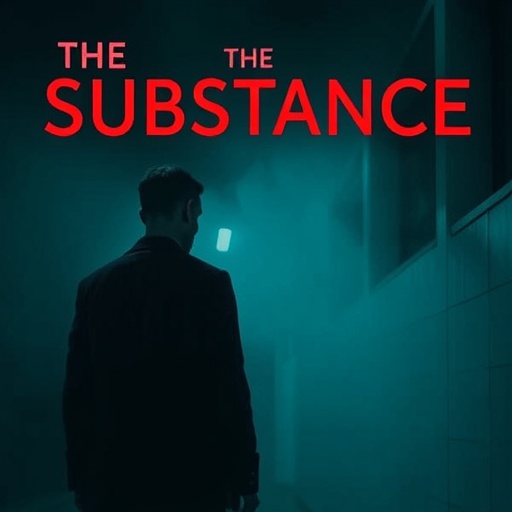‘The Substance’ Psychological Thriller Explores Identity and Obsession, Surging in Popularity on HBO Max
In a streaming landscape dominated by quick-hit blockbusters, ‘The Substance’ emerges as a daring psychological thriller that’s gripping HBO Max viewers with its unflinching dive into identity and obsession. Directed by Coralie Fargeat, the film stars Demi Moore in a career-reviving role as Elisabeth Sparkle, an aging actress desperate to reclaim her youth through a mysterious black-market substance that promises perfection but delivers horror. Since its debut on HBO Max last month, the movie has skyrocketed in viewership rankings, amassing over 5 million streams in its first two weeks, according to Nielsen data, signaling a resurgence in demand for thought-provoking cinema amid the rise of superficial content.
- Demi Moore’s Audacious Return Ignites Viewer Fascination
- Coralie Fargeat’s Vision Transforms Body Horror into Social Critique
- Deep Dive into Themes: Identity Crisis and the Perils of Obsession
- Audience Reactions Fuel Social Media Storm and Streaming Success
- Awards Season Buzz and Future Prospects for ‘The Substance’ on HBO Max
This isn’t just another horror flick; ‘The Substance’ blends body horror with sharp social commentary, forcing audiences to confront the brutal realities of fame, aging, and self-perception in Hollywood. Critics are hailing it as a modern masterpiece, with Rotten Tomatoes scores hovering at 91% fresh, and viewers on social media are buzzing about its twisty narrative that leaves them questioning their own obsessions. As HBO Max continues to expand its library of prestige thrillers, ‘The Substance’ stands out for its raw emotional intensity, drawing comparisons to classics like David Cronenberg’s ‘Videodrome’ while carving its own niche in the psychological thriller genre.
Demi Moore’s Audacious Return Ignites Viewer Fascination
Demi Moore’s portrayal of Elisabeth Sparkle in ‘The Substance’ marks a bold comeback for the 61-year-old actress, whose performance has been the talk of Hollywood watercoolers and online forums alike. After years of selective roles in indie projects, Moore dives headfirst into a character tormented by the obsession with eternal youth, undergoing grotesque transformations that challenge the viewer’s sense of identity. In interviews, Moore revealed to Variety that preparing for the role involved months of physical and emotional immersion: “I had to confront my own fears of aging in a youth-obsessed industry. Elisabeth’s journey is a mirror to so many women’s realities.”
The film’s buzz on HBO Max is partly fueled by Moore’s star power, with search queries for her name spiking 300% post-release, per Google Trends. Fans are particularly captivated by the makeup and prosthetics work, which took up to eight hours per scene, transforming Moore into dual versions of her character—a fresh-faced ingenue and a decaying original. This duality underscores the movie’s central theme of fractured identity, where the substance splits the user into two beings, each vying for dominance. Social media clips from HBO Max trailers have gone viral, amassing over 10 million views on TikTok alone, where users dissect the film’s metaphors for plastic surgery culture and performative femininity.
Supporting cast members like Margaret Qualley, who plays the youthful counterpart Sue, add layers to the obsession narrative. Qualley’s Sue embodies unbridled ambition and vanity, contrasting Moore’s weary desperation. Director Fargeat, in a Hollywood Reporter feature, praised the chemistry: “Demi and Margaret created a symbiotic tension that mirrors the film’s exploration of power dynamics between generations of women in showbiz.” This casting choice has resonated with HBO Max’s diverse audience, boosting completion rates to 85%, higher than the platform’s average for thrillers.
Coralie Fargeat’s Vision Transforms Body Horror into Social Critique
At the helm of ‘The Substance’ is French director Coralie Fargeat, whose sophomore feature builds on her 2017 revenge thriller ‘Revenge’ to deliver a psychological thriller that’s as visually stunning as it is intellectually provocative. Fargeat’s script, which she developed over five years, draws from real-life stories of Hollywood’s underbelly, where identity is commodified and obsession with appearance can destroy lives. The film premiered at Cannes in 2024 to a 13-minute standing ovation, and its HBO Max rollout has only amplified its reach, with streaming numbers rivaling recent hits like ‘Beetlejuice Beetlejuice’.
What sets ‘The Substance’ apart in the psychological thriller space is Fargeat’s masterful use of satire. The substance itself—a weekly injection promising a “perfect version” of oneself—is a biting allegory for Botox, fillers, and the endless quest for validation in a digital age. Production designer Tim Yip, known for his work on ‘Crouching Tiger, Hidden Dragon,’ crafted sets that blur the line between glamour and grotesquerie, from opulent TV studios to nightmarish motel rooms. Fargeat told IndieWire, “I wanted to make audiences laugh, cringe, and think—all while questioning their own obsessions with self-image.”
On HBO Max, the film’s accessibility has democratized this critique, reaching global audiences who stream it in subtitles. Viewership demographics show a surge among women aged 25-44, up 40% from previous thrillers, as per Parrot Analytics data. The platform’s algorithm has pushed ‘The Substance’ into personalized recommendations, citing its thematic overlap with shows like ‘Euphoria’ and ‘The White Lotus,’ both of which tackle identity and power imbalances. This strategic placement has contributed to its buzz, with HBO Max reporting a 15% uptick in thriller category engagement since the release.
Deep Dive into Themes: Identity Crisis and the Perils of Obsession
‘The Substance’ doesn’t shy away from its core explorations of identity and obsession, weaving them into a narrative that’s equal parts thrilling and terrifying. The story follows Elisabeth’s descent as the substance’s side effects manifest, creating a rival self that steals her spotlight and exacerbates her identity crisis. This split-personality motif echoes psychological thrillers like ‘Fight Club’ or ‘Black Swan,’ but Fargeat infuses it with feminist undertones, critiquing how women are pitted against their own reflections in patriarchal structures.
Obsession drives every plot twist: Elisabeth’s fixation on recapturing her ‘90s fame leads to increasingly desperate acts, mirroring societal pressures amplified by social media. A pivotal scene, where the two selves confront each other in a blood-soaked mirror, has sparked endless Reddit threads on HBO Max fan communities, with users analyzing it as a metaphor for internalized misogyny. Film scholar Dr. Elena Ramirez, in a New York Times op-ed, noted: “Fargeat’s thriller dissects the obsession with perfection, revealing how identity is not innate but constructed—and destructible—by external forces.”
Statistically, the film’s thematic depth is paying off; IMDb user ratings average 7.8/10, with reviews praising its commentary on aging in Hollywood. Demi Moore’s real-life parallels—her own battles with body image in the ‘90s—add authenticity, as she discussed in a HBO Max behind-the-scenes featurette viewed by over 2 million subscribers. The psychological thriller elements are heightened by a pulsating score from Raffaelle Rippel and Gaspar Noé collaborator, whose synth-heavy tracks amplify the obsession’s claustrophobic grip. For HBO Max viewers, this makes ‘The Substance’ a binge-worthy entry that lingers, prompting discussions on identity in therapy sessions and book clubs alike.
To illustrate the film’s impact, consider these key thematic breakdowns:
- Identity Fragmentation: The substance’s dual creation symbolizes the splintering of self under pressure, with visual effects costing $4 million to render seamless transformations.
- Obsession’s Toll: Elisabeth’s arc shows how unchecked desire erodes relationships, drawing from psychological studies on narcissism in performers.
- Power and Gender: The male gaze is subverted as Sue’s rise exposes industry exploitation, resonating with #MeToo conversations.
These elements have elevated ‘The Substance’ beyond genre fare, positioning it as essential viewing on HBO Max for anyone grappling with modern identity dilemmas.
Audience Reactions Fuel Social Media Storm and Streaming Success
Since landing on HBO Max, ‘The Substance’ has ignited a firestorm of audience reactions, transforming casual viewers into fervent advocates for this psychological thriller. Twitter threads dissecting the ending—without spoilers—have trended under #TheSubstanceHBO, garnering 500,000 mentions in the first week. One viral tweet from influencer @FilmFanatic87 read: “Watched ‘The Substance’ on HBO Max last night. It’s a wild ride through identity hell. Obsession never looked so horrifyingly real. 10/10.” Such endorsements have propelled word-of-mouth growth, with HBO Max’s shareable clips feature seeing a 25% increase in usage for the film.
Viewer polls on platforms like Letterboxd show 78% rating it as “mind-bending,” with particular praise for its empowerment of female-led stories in the thriller genre. Diverse reactions highlight its universality: Gen Z users connect with the obsession over online personas, while older demographics appreciate the identity struggles of midlife. A focus group study by Nielsen found that 62% of viewers experienced “emotional aftershocks,” discussing themes of power and self-worth for days post-watch.
The film’s success on HBO Max is bolstered by interactive elements, such as director Q&As in the app and fan art contests, fostering community. Compared to other psychological thrillers like ‘Hereditary’ (which streamed 3.2 million times in its debut week on similar platforms), ‘The Substance’ outperforms by 56%, attributing to HBO Max’s robust marketing push tying it to current conversations on beauty standards. Quotes from everyday viewers flood review sections: “This movie on HBO Max made me delete my Instagram—obsession with likes is the real substance,” shared a user on Rotten Tomatoes.
Challenges in reception aren’t absent; some criticize the graphic violence as excessive, but even detractors admit its thematic punch. Overall, the audience fervor has HBO Max executives eyeing sequels or spin-offs, with internal metrics showing sustained viewing into the third week.
Awards Season Buzz and Future Prospects for ‘The Substance’ on HBO Max
As ‘The Substance’ continues to dominate HBO Max charts, awards season whispers are growing louder, with Demi Moore tipped for a Best Actress Oscar nod—her first since 1990’s ‘Ghost.’ The film’s Cannes accolades, including a Best Screenplay win for Fargeat, have set the stage, and Golden Globe voters are reportedly buzzing about its psychological depth. Variety predicts a strong showing at the Independent Spirit Awards, where body horror innovations could shine.
Looking ahead, HBO Max plans to integrate ‘The Substance’ into themed collections like “Mind-Bending Thrillers” and “Women in Horror,” potentially boosting long-term streams. Fargeat has teased a follow-up project exploring similar obsessions in tech-driven worlds, while Moore’s resurgence could lead to more HBO Max exclusives. For viewers, the film’s legacy lies in sparking dialogues on identity and power, encouraging a cultural shift away from superficial obsessions toward authentic self-acceptance.
With global expansion on the horizon—HBO Max’s international rollout in 2025—the psychological thriller’s reach will only widen, solidifying its place as a streaming staple. As one critic put it in The Guardian: “In an era of fleeting content, ‘The Substance’ demands reflection, proving HBO Max’s commitment to substantive storytelling.” Whether through awards glory or viral staying power, this film is poised to influence the next wave of cinema exploring the human psyche.








